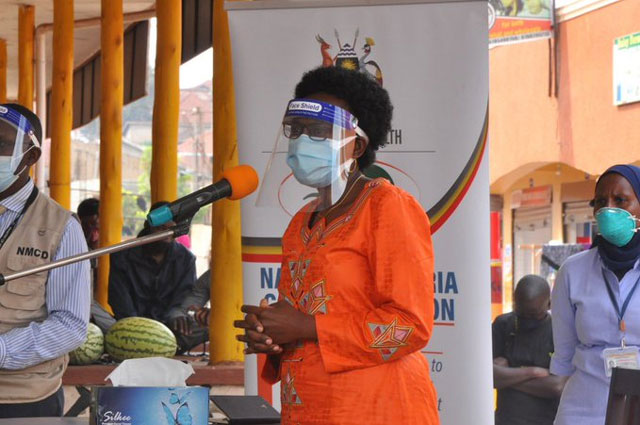
Kampala, Uganda | THE INDEPENDENT | June has so far been the worst month for Uganda in as far as the coronavirus pandemic concerned. It has been characterized by surging cases, a new total lockdown, skyrocketing deaths, oxygen shortages, lack of beds for critical patients as well as an upsurge in the cost of treating patients in private hospitals.
It’s an analysis of the data that can illustrate the extent to, which the pandemic has ravaged Uganda. According to statistics by the Ministry of Health, 34,321 people tested positive in June, which is 41.8 percent of the total cases Uganda has registered since the outbreak of the pandemic in March last year.
The rate of people testing positive averaged at 15.8 percent, according to data URN has analyzed. 215,876 tests were carried out as per Ministry of Health data and 34,321 people tested positive. The death rate was however the highest of the parameters that URN has analyzed. Uganda registered 747 coronavirus deaths in June, which is 67% of the total deaths recorded since the start of the pandemic.
However, Minister of Health, Jane Ruth Aceng on Friday revised the Coronavirus death statistics. The deaths now stand at 1,873 cases.
According to Aceng, they revised the deaths following harmonization of what were previously suspected deaths from people who had not tested positive for coronavirus. But she did not specify whether 746 “clinically confirmed deaths” added to the original death figure happened in June.
Going forward, Aceng said “COVID-19 deaths will be reported in real-time as PCR/AgRDT confirmed or probable COVID-19 deaths.” Aceng seemingly portrayed a gloomy picture for July, saying cases are expected to peak at the end of July or early August.
The current lockdown, which mainly targets to interrupt the spread of the pandemic, has entered the second week. And four weeks remain. Going with Aceng’s projection that cases are likely to peak in August, this means the lockdown will be extended.
More Testing
Aceng said the government has scaled up testing through the use of Rapid Diagnostic Tests (RDTs). They have been distributed to the National Referral Hospital, Regional Referral Hospitals, District hospitals and other health facilities across the country. “To scale-up testing, we have also initiated outreach testing camps using RDTs to increase access and reduce the volume of samples referred to the central laboratories,” she said. “In Kampala metropolitan area, 25 sites have been set up and a similar approach is encouraged in different districts.”
Positive cases have been somehow going down from an average of 1500 in the first two weeks of June to about 1000 in the last week of July, according to the analysis of the Ministry of Health data. Though RDTs have been introduced, Dr. Masika Wayengera, who heads the coronavirus scientific advisory committee, says mechanism for capturing RDT data have not yet been linked to the results data system at the Ministry of Health.
The coronavirus transmission cycle is 14 days. So Wayengera says it’s premature to start, saying the numbers are falling or going up. A plausible conclusion, he says can be drawn after at least two transmission cycles, which is 28 days.
“To be sincere, when we took these measures, we did not anticipate that this thing would change after one cycle of two weeks,” he said. Wayengera also underscores the fact that while the total number of cases being reported may have fallen, the number of severely ill people has remained high. And the death rates have also remained high.
“What this tells us is, a lot of our people are sick, they are in communities and it means transmission is happening in communities.” Though Kampala, Wakiso and Mukono were the epicentres of the pandemic in June, Wayengera says there are chances that the epicentre could shift to Mbarara, Gulu, Jinja districts where cases have been on the rise.
****
URN
The post ‘No sign of hope after Uganda’s worst COVID month of June’ appeared first on The Independent Uganda:.
from The Independent Uganda: https://ift.tt/2SKUAyh
0 Comments